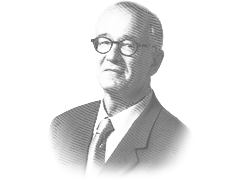Paul DiMaggio is Professor of Sociology at New York University, A. Barton Hepburn Professor Emeritus of Sociology and Public Affairs at Princeton University. A graduate of Swarthmore College (B.A.) and Harvard University (M.A. and Ph.D.), he taught at Yale for twelve years and Princeton for twenty-four years before moving in 2016 to NYU, where he is affiliated with the Center for Data Science, the Stern School of Business, and the Wagner School of Public Policy in addition to his primary appointment in the Sociology Department. Within economic sociology, he has written about the ways in which culture shapes economic life and has studied the role of personal networks in market exchange, the impact of technology use on earnings (with Bart Bonikowski), and, in ongoing research with Filiz Garip, mechanisms through which social networks exacerbate intergroup inequality. He has also written extensively about organizations, focusing on factors that induce homogeneity within organizational fields, on organizational change in corporations, and on the special problems of nonprofit cultural organizations. He is currently writing a book on the ways in which the cognitive revolution has transformed the social sciences’ understanding of culture. DiMaggio is a member of the American Academy of Arts and Sciences, the American Academy of Political and Social Science, and the American Philosophical Society, and has been a visiting fellow at the Russell Sage Foundation and the Center for Advanced Study in the Behavioral Sciences; has held a John Simon Guggenheim Memorial Foundation Fellowship; and has received Princeton University’s Graduate Mentoring Prize. He is currently (2017-18) a member of the Institute for Advanced Study’s School of Social Science. NYU home page: https://as.nyu.edu/faculty/
Paul DiMaggio
Professor of Sociology“A hardhitting economic sociology would attempt to draw on the best of sociology and economics, and to unite interests and social relations in one and the same analysis.”— Richard Swedberg

